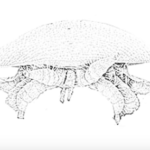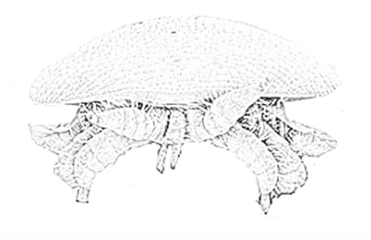 Winter is a particularly critical time for bee colonies. For bees is not so dangerous winter that is extremely long and cold, not even warm winter too, but are extremely hazardous winters with large temperature differences. Especially if the winter gets extremely cold in long period at its end, after warm winter period, like in 2011, warm January and extremely cold February and part of March. The formula of a successful winter survival could be described as: a healthy colony + enough food + sufficient number of bees.
Winter is a particularly critical time for bee colonies. For bees is not so dangerous winter that is extremely long and cold, not even warm winter too, but are extremely hazardous winters with large temperature differences. Especially if the winter gets extremely cold in long period at its end, after warm winter period, like in 2011, warm January and extremely cold February and part of March. The formula of a successful winter survival could be described as: a healthy colony + enough food + sufficient number of bees.
Winter is a particularly critical time for bee colonies. For bees is not so dangerous winter that is extremely long and cold, not even warm winter too, but are extremely hazardous winters with large temperature differences. Especially if the winter gets extremely cold in long period at its end, after warm winter period, like in 2011, warm January and extremely cold February and part of March. The formula of a successful winter survival could be described as: a healthy colony + enough food + sufficient number of bees.
How to ensure a healthy colony
Health of the colony depends on many factors, but mostly on the beekeeper. In addition to a variety of viral and bacteriological diseases that emerge periodically and are not so frequent threat to bee colonies, the greatest danger now represent two pests / parasites which are Varroa destructor and Nosema Cerrano. The development of Nosema require special climatic conditions and weaker honey bee colonies, in other hand Varroa destructor can destroy the strongest colonies in just a few winter months. Therefore it is very important to properly treat against Varroa destructor . The first such treatment takes place usually in late July and/or throughout August. You need to control Varroa mites fall on the floor in the hive, and if necessary, repeat treatement, at least once, and if the high degree of contamination even twice, and each time check the fall of Varroa mites. The successful control and eradication of Varroa is a key for good wintering of colonies and its successful development in the spring.
How to provide enough food
It is crucial during extracting honey do not take all the honey out. The responsible beekeeper has to leave enough honey and pelud for bees to be able to survive the winter. Speaking in terms of kg average colony needs about 10kg – 15kg of honey per year to successfully overwinters (continental Europe). The beekeeper must care that the bees overwinter more successfully and easier in the spring honey and accacia honey vs. for example chestnut honey. This does not mean that the bees will not be able to overwinter in such a honey, but let’s say a colony that is additonaly affected by nosemosis may have great difficulty, especially during the long winters. It is strongly recommended to never extract honey from the brood chambers (chamber below queen excluder lr – system), and leave a good 1-2 full frames of honey in the top chamber. Pollen can also be collected at the time in very intensive spring or summer period and the longest collecting period is 14 days per colony. So bees are preparing for the winter in the spring as soon as the winter ended. Bees can be additionally fed for winter by the beekeeper. There are basic three feeding purposes: first to provide an additional source of food to supplement the supplies of honey, the second is to encourage further laying brood to ensure the largest possible number of winter bees, third to survive periods of extremely hot summer with no quality source of food for bees. All feedings should be completed no later than September 15th, because of winter bees which by its physiognomy is quite different from the summer bees. Additionaly feeding could significantly reduce its life expectancy. Bees can be fed by sugar syrup or sugar Bees’ bread.
How to ensure a sufficient number of bees
At least all ten streets in one chamber is a demand for surviving and successfully the spring development (for nuke’s hive smaller number). This does not mean that smaller colonies can not overwinter, but it would hardly be a real productive colony with a lots of honey during a next year. The key to ensuring a sufficient number of bees is a preventing of excessive swarming, and colonies split. Also it is advisable by additional feeding in July and August encourage the bee queen to lay more eggs for winter bees generation. Winter bees are extremely important, not only because of overwintering, also because winter bees will feed the first generation of summer bees in early spring. It is therefore very important that in February and March have enough winter bees. These are the two most critical months.

